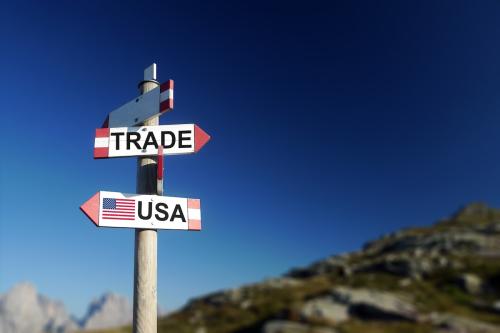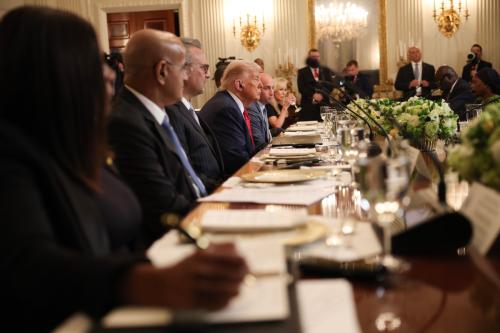Canada is America’s biggest trading partner and largest supplier of energy. Approximately 400,000 businesspeople, tourists, truckers and regular commuters cross the U.S.-Canada border daily, many of them engaged in the co-production of products and services that must compete in a global economy. Since the attacks of September 11, 2001, however, measures to ensure homeland security have made crossing the border more difficult. This “border thickening” has increased the costs of compliance for business, including the hard-pressed auto and tourism industries.
With cross-border traffic expected to peak during the 2010 Winter Olympics in Vancouver, many fear that implementing a new Western Hemisphere Travel Initiative as planned this year will cause further economic damage on both sides of the border.
With these concerns in mind, the Brookings Metropolitan Policy Program and the Canadian International Council sponsored a day-long forum on the current challenges and opportunities to improve U.S.-Canada border policy and management. This forum took place March 25, 2009 at the Brookings Institution and featured key officials and experts from the United States and Canada.
U.S. Homeland Security Secretary Janet Napolitano, delivering the forum’s keynote speech, indicated that the new administration would maintain most of the security requirements —including the new travel initiative—put in place in the aftermath of the 2001 terrorist attacks. “It’s a real border and we need to address it as a real border,” she said. At the same time, she encouraged the concept of a “futuristic border” that one day could harness new technologies to ensure a safe and seamless flow of people between the two countries.
The Brookings Institution is committed to quality, independence, and impact.
We are supported by a diverse array of funders. In line with our values and policies, each Brookings publication represents the sole views of its author(s).


